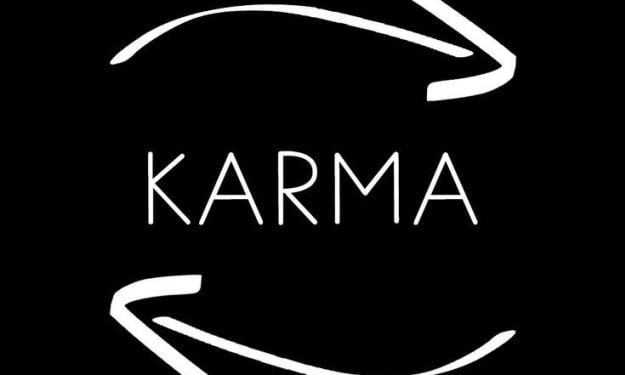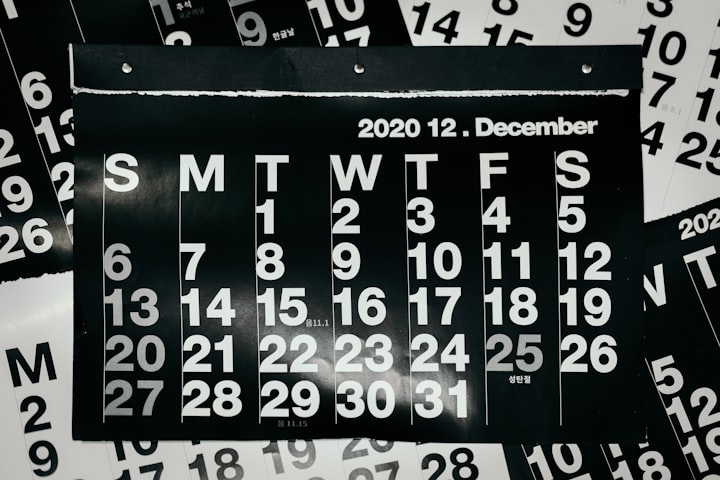Coping with Holiday Depression
You are alone at the holiday—so what?!

By: Marlene Affeld
Loneliness is a word used to express the pain of being alone, solitude is a word used to express the glory of being alone. Learn to know the difference. Express your feelings. It’s all right if you prefer your own company for the holidays and avoid connecting with family and friends. It's your choice. Don’t let family or friends pressure you into feeling otherwise.
Merry Christmas! Happy Holidays! Joy To The World! Happy New Year!—Give me a break you say—it may be the season to be jolly, but not all of us feel that way. Let’s be honest; for a great many people, the holiday season spanning the period between Thanksgiving and the Valentine’s Day is anything but merry.
Fact is, for many this time of the year seems to trigger a major case of the blues or a spiraling downward depression. Moreover, the holidays can be disappointing and stressful even if one is not suffering from depression. With high expectations, we try to recapture the magical feeling of anticipation we experienced as children waiting for Santa. When that sense of wonderment fails to materialize, we are sad and disappointed.
One of the things that makes the holidays unbearable if you are fatigued and in a depressed state already, is everyone, including strangers and television commercials, tell us that we should be happy and enjoying this time of year. Perhaps they mean well, but it isn’t making anything any easier.
Nerves fray, tempers flare and tears flow when we “run ourselves ragged” checking our lists, entertaining, shopping, cooking, cleaning, and decorating. We wonder what we can do to feel the “Christmas Spirit” and wait for the warm rush of emotion as we contemplate the religious significance of the holiday. It doesn’t happen.
Instead, we are thrown together with relatives whom we see infrequently and don’t necessarily enjoy spending time with. If they weren’t relatives, they wouldn’t be friends. They bore you and drain your energy: you can’t wait for them to go home.
We suffer through a constant barrage of carols and holiday music that is strident to our ears. The sale signs reek of the blatant commercialization of the season and the glare of incessantly blinking holiday lights are bringing on a migraine. Driving is a nightmare, the traffic is dreadful, it has started to snow, the roads are slick – the sheer stress of the holidays becomes too much and you want to just sit down and have a good cry.
Bah Humbug Syndrome
Research studies, by a team of scientists in Denmark, announce that the Christmas spirit is located inside our brains. The area of the brain associated with shared emotions and spirituality depends on our brain function. The research indicates that millions of people are insensitive to nostalgic feelings, human warmth, solidarity, and the magic of Christmas. If you would just like to flip the calendar from November to February, you are not alone. Scientists explain this phenomenon as “Bah Humbug” syndrome.
The research, conducted at the Danish hospital Rigshospitalet at the University of Copenhagen, focused on attempting to isolate the “Spirit of Christmas” in the human brain by the use of functional magnetic resonance imaging (MRI). Scans validate portions of the brain are activated by various mental processes.
The random study involved 20 participants in good health living in the same geographical area. Half of the group traditionally celebrated the Christmas holiday. The rest of the test group did not follow Christmas traditions. Both men and women were included in the data.
The participants each had a functional MRI scan after having viewed a series of images with Christmas themed photos interspersed with neutral images. After the test scans, each participant completed a questionnaire about their Christmas traditions, their associations with this time of year, and their age and ethnicity.
MRI results indicate that five distinct parts of the brain were activated to a significant degree in the people who typically celebrate Christmas. These regions in the brain are associated with memory, spirituality, the recognition of facial emotion, somatic senses, and a diverse array of other functions. The affected areas of the brain are the sensory motor cortex, the premotor motor cortex, the parietal lobules (inferior and superior) and the primary motor cortex.
In one test, researchers observed the activation of the left and right parietal lobules, which have been shown in previous brain research studies to play an important role in self-transcendence, the personality trait associated with a predisposition to spirituality.
Researchers conducting the study noted that the frontal premotor cortex is vital in experiencing emotions shared with others by copying or mirroring their body state.
Further research studies will likely provide fresh insight reguarding the spirit of Christmas and help identify other circuits within the brain, which come into play during other festivals such as Easter, Hanukah, Eid, and Diwali.
The study's authors remarked that although these initial findings are intriguing they should be viewed with caution, and that a phenomenon as magical and complex as the “Christmas Spirit” cannot be fully documented nor explained.
Improving a Bad Mood
The MayoClinic.com advises, “Seek professional help if you need it. Despite your best efforts, you may find yourself feeling persistently sad or anxious, plagued by physical complaints, unable to sleep, irritable and hopeless, and unable to face routine chores. If these feelings last for a while, talk to your doctor or a mental health professional.
While clinical depression is a serious issue for which one should seek professional help, those of us with a “touch of the holiday blues” can employ strategies recommended by experts to help ensure a “Merry Christmas and a Happy New Year.”
Dealing With Ghosts of Christmas Past
Examine what it was that lead to trouble in the past. Was it too much drinking, substance abuse, decreased social contact, too much fattening foods, or a lack of exercise that put you in this slump? Every time we fall victim to a bout of the “blues,” it leaves its mark. Look for what it was in the past that has been a repetitive source of friction or trouble and find ways to avoid it. With a bit of planning you can take a lot of the stress out of the season.
Spend time outdoors and remember to breathe. Be mindful and focus on the moment. The holidays are not the time to dig out old photos of lost loves and happier days. Doing so serves no purpose and only makes us very sad. Save nostalgia for another time to avoid a “poor pity me party”. Leave the past in the past. Make new memories and create new traditions.
Remember It’s Just A Day
For the millions of persons who won’t be surround by friends and loved ones during the holidays for a variety of reasons, separation, divorce, death, travel, or just because the ones we miss are in different parts of the world, being alone at Christmas can contribute to a sense of loneliness and isolation.
Media hype about family and togetherness, accentuates feelings of disconnection. Attempt to keep things in perspective. Try not to make the holidays out to be more than they are. Connecting with others on Christmas doesn’t make up for the other 364 days of the year. Remember it’s just another day.
References:
Researchers Find 'Christmas Spirit' Areas in Brain
About the Creator
Marlene Affeld
“A passionate writer for more than 30 years, Marlene Affeld’s passion for the environment inspires her to write informative articles to assist others in living a green lifestyle.”






Comments
There are no comments for this story
Be the first to respond and start the conversation.